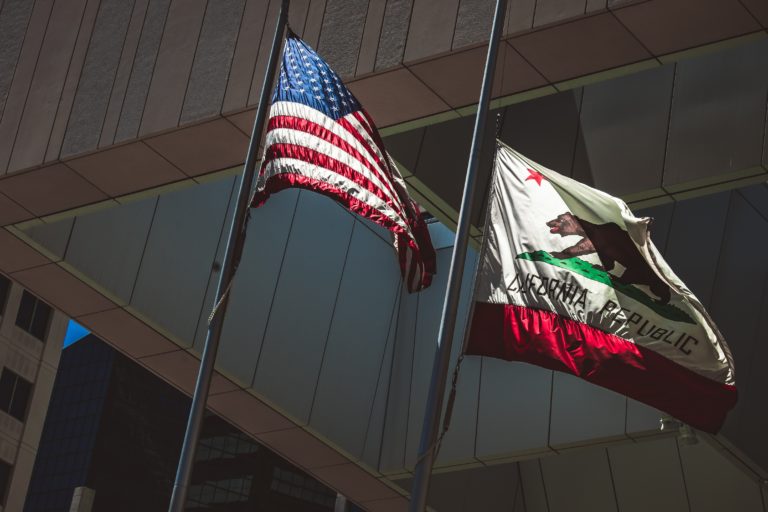The problem with using legislation to fight the culture war is that you might tie yourself in knots trying to own the other side.
On Thursday, California Attorney General Rob Bonta (D.) filed a supplemental brief in a lawsuit challenging the state’s fee-shifting provision for gun litigation. The purpose of the brief? To announce that he could no longer defend the law’s legality in good faith and that he was withdrawing from the case.
“At this time, the Attorney General is not in a position to defend the merits of a provision indistinguishable in relevant part from a provision that he has opined is unconstitutional,” the brief reads.
Before the passage of California’s copycat bill, Bonta had signed on to an amicus brief in the lawsuit challenging Texas’s bounty-style abortion ban, and he made public statements that referred to the law as “blatantly unconstitutional” for its attempt to evade federal judicial review. Now, tasked with defending the legal merits of a nearly identical gun law, the cognitive dissonance required proved too much.
As a result, the California Department of Justice will no longer defend the state’s copycat fee-shifting law. Instead, as indicated in the supplemental brief, California Governor Gavin Newsom (D.) has elected to intervene with the help of a private law firm to continue fighting for the law.
“While the Attorney General has determined that he is constrained in his defense of section 1021.11 by prior positions he expressed in litigating against Texas’s S.B. 8, the Governor is not, and the Governor’s defense of the statute would thus allow for full judicial review,” Newsom’s attorneys wrote in his motion to intervene.
While some could interpret Bonta’s bowing out as a principled stand against arguing on behalf of a law he knows is wrong, it’s more likely that he did so because he ran out of options. For months, AG Bonta’s office attempted to shield California’s copycat provision from judicial review by voluntarily declining to enforce it unless the Texas version was upheld in court. By refusing to enforce it, he argued, gun-rights plaintiffs did not have standing to challenge California’s law in court.
However, that tactic was rebuked by U.S. District Judge Roger Benitez earlier this month. Benitez, a judge known for issuing several rulings against the state’s gun laws in recent years, refused to deny standing to a coalition of gun rights groups in this latest case. A trial on the law’s merits is set to occur next week. With procedural maneuvering no longer an option, Bonta’s only remaining choice was to either step away or make contradictory legal arguments when defending against an injunction.
Furthermore, gun-rights plaintiffs used Bonta’s past criticisms of the legality of Texas’s law to discredit his legal defense of California’s copycat law. The California Rifle and Pistol Association (CRPA) took the rare step of pursuing sanctions against Bonta before he agreed to bow out.
“CRPA served a Rule 11 Sanction Motion yesterday on the state attorneys stating that the DOJ knew at the time they filed their opposition brief that the legal arguments had no merit and it looks like that may have been the catalyst for this sudden change of direction,” the group said in a news release responding to the AG’s announcement.
Rule 11 sanctions refer to the Federal Rules of Civil Procedure, which govern the conduct of attorneys in civil suits in U.S. District Courts. It requires attorneys to certify they are offering pleadings they believe are factual. If a judge determines an attorney violated Rule 11, they can issue severe sanctions against them.
Had Bonta stayed on the case to defend SB 1327’s fee-shifting statute on the merits, it’s possible that Judge Benitez would have done exactly that.
The legal mess is the inevitable result of the tit-for-tat strategy undertaken by lawmakers in California and Texas. The prioritization of culture war victories over prudent lawmaking has culminated in a legal case over a law both sides believe to be unconstitutional. The gamesmanship will likely continue until the federal courts pump the breaks on measures that attempt to chill judicial review.







4 Responses
Fee shifting is unconstitutional, either in the Texas abortion law, or in the California gun laws.
I think that’s likely the case. I don’t understand what is taking courts so long to act on these laws.
There’s nothing unconstitutional or improper about “fee shifting.” As I commented a few days ago, the “American Rule” calls for each civil litigant to pay their own legal fees and costs. But there are exceptions: by statute (over 200 at the federal level alone), and at common law, for the common benefit and for bad faith.
Probably the most familiar fee shifting statute is 42 U.S. Code § 1988, which implements the Civil Rights Attorney’s Fees Award Act of 1976. Alan Gura recovered fees under this statute for his work on the landmark case Heller v. DC.
What’s so perverse about California’s SB 1327 is that it shifts fees against the public interest. It’s also in direct conflict with § 1988. And the U.S. Constitution’s Supremacy Clause says, when in conflict, federal law prevails.
Despite popular commentary, California’s SB 1327 is not a “mirror image” of Texas’s SB 8. The unique feature of SB 8 was its exclusive use of private attorneys general. This provision was key to thwarting pre-enforcement challenges. The State of California continues to actively enforce its gun laws, and notwithstanding SB 1327, it has no plans to stop enforcing them.
Indeed, at the time Texas passed SB 8, there were no laws in force that allowed the state to restrict abortion—because federal courts enjoined them typically hours after they were enacted. California has a plethora of gun laws that the state strictly enforces. Despite decades of litigation, almost none of these has ever been successfully overturned.
The fee shifting in Texas’s SB 8 was intended to incentivize the private attorney general enforcement mechanism. The fee shifting in California’s SB 1327 was conceived to thwart the legitimate efforts of Second Amendment activists to vindicate an enumerated and fundamental Constitutional right.
More than anything else, the Supreme Court’s most recent term draws the sharpest contrast between these two statutes. The legal war over abortion has ended, while the fight to enforce the Second Amendment is just beginning. This reveals California’s SB 8 to be little more than a political stunt by Gavin Newsom to curry favor with Democratic partisans.
Thanks for that added detail. That’s good information.